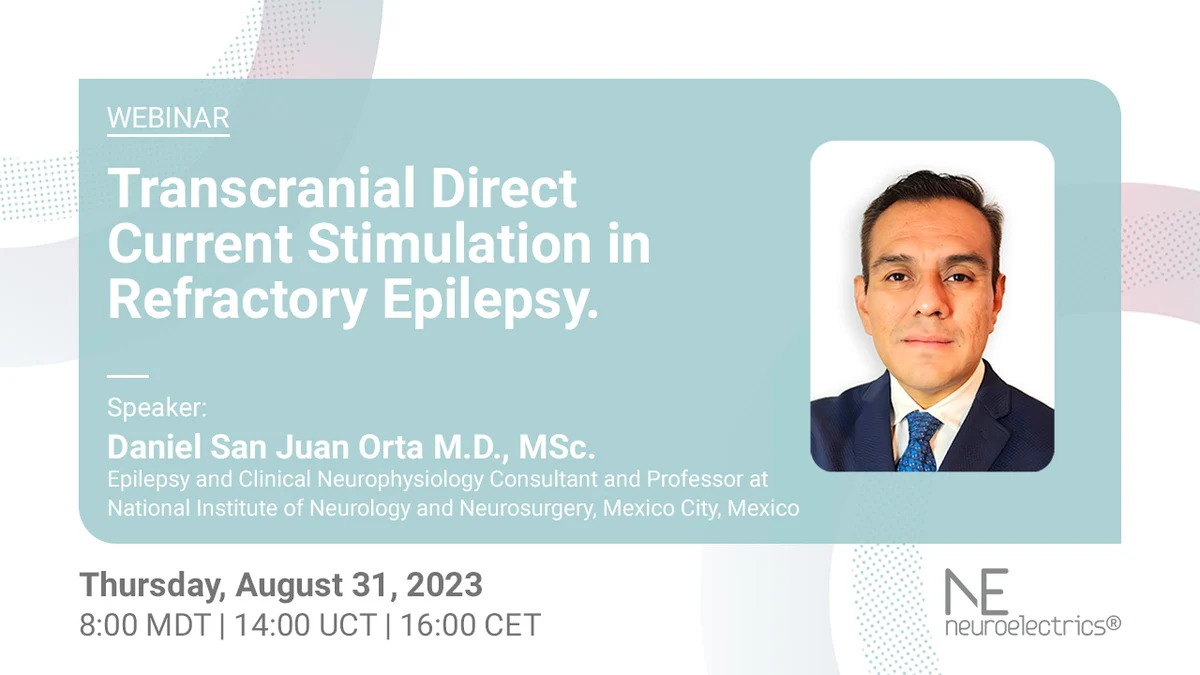Webinar | Transcranial Direct Current Stimulation in Refractory Epilepsy

31 August, 2023 - 31 August, 2023
Epilepsy is a chronic disease of the brain that affects individuals of all ages and has a worldwide distribution. According to a 2006 World Health Organization report, 50 million people had epilepsy. Approximately 30% of people with epilepsy have refractory disease despite recent therapeutic developments. Consequently, new treatments are necessary. Transcranial direct current stimulation (tDCS) is a noninvasive method for cortical excitability modulation by subthreshold membrane depolarization or hyperpolarization (cathodal stimulation decreases cortical excitability, whereas anodal stimulation increases it), which has been shown to be safe, economical, and easy to use. The mechanism of action of tDCS is partially understood. Cathodal tDCS in vitro and in vivo animal studies have shown that direct current and cathodal tDCS can successfully induce suppression of epileptiform activity in EEG recordings. Cathodal tDCS has been used in heterogeneous clinical trials in pediatric and adult patients with refractory epilepsy and is well tolerated. A comprehensive review of the clinical trials based on their quality and biases shows evidence that cathodal tDCS in patients with epilepsy is potentially effective. However, additional randomized clinical trials are needed with other etiologies, special populations, additional concomitants therapies, long-term follow-up, and new parameters of stimulation.
Get to know our speaker
Dr. Daniel San Juan Orta M.D., Msc.
Epilepsy and Clinical Neuropsychology Consultant & Professor at National Institute of Neurology and Neurosurgery, Mexico City
Neurologist, Neurophysiologist, and Clinical Epileptologist born in Huejutla de Reyes, Hidalgo, Mexico, completed his Medical degree at the Universidad Autónoma de Tamaulipas and moved to Mexico City during his internship at the Fundación Médica Sur. He then pursued his studies in Adult Neurology at the Instituto Nacional de Neurología y Neurocirugía affiliated with the Universidad Nacional Autónoma de México and later completed a fellowship in Clinical Neurophysiology and Epileptology at the Massachusetts General Hospital, affiliated with Harvard University. As Chief of the Department of Clinical Research at the Instituto Nacional de Neurología y Neurocirugía, he also studied Medical Sciences at the Dresden International University in Germany. Current positions: Adjunct Professor in the Clinical Neurophysiology subspecialty at INNN Director of the first Principles and Practice of Clinical Research course center in Mexico, Harvard University Affiliate of the Epilepsy Clinic, Instituto Nacional de Neurología y Neurocirugía, Mexico. National Researcher CONACYT SNI II. He has interests in non-invasive neuromodulation, refractory epilepsy, intraoperative neurophysiological monitoring, and clinical neuroscience in general
